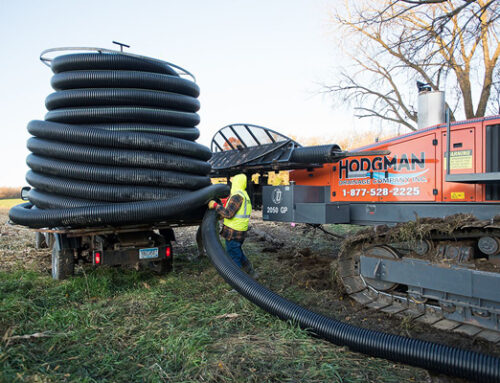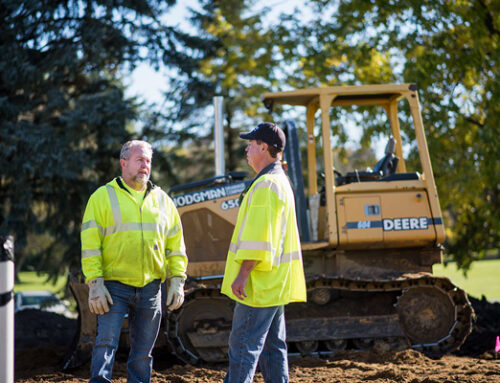Field tiling is a game-changer in achieving high agricultural yield and sustainable farming in Minnesota. This practice involves installing underground drainage systems that remove excess water from the fields, creating a well-drained and highly productive environment for crops to thrive.
In this blog post, we will uncover the benefits of field tiling in Minnesota and how it contributes to efficient agricultural water management.
1. Increased Crop Yields Through Field Tiling in Minnesota
Proper field tiling plays a crucial role in maximizing crop yields in Minnesota. By removing excess water from the fields, tiling creates well-drained soil that allows for better root development and nutrient absorption by plants. This results in healthier and more productive crops, leading to higher yields.
Moreover, field tiling allows for earlier planting as it dries out the fields faster after heavy rains. This extended growing season gives farmers more time to plant and harvest their crops, increasing yield potential.
2. Improved Soil Health
Excess water in fields can cause compaction and soil erosion, negatively impacting soil health. Field tiling helps prevent these issues by draining excess water and allowing for proper soil aeration. This, in turn, promotes the growth of beneficial microorganisms that improve soil structure and nutrient availability for plants.
Additionally, tiling allows for more efficient use of fertilizers and other inputs as they are not washed away by excess water. This reduces the environmental impact of farming and helps maintain soil health in the long run.
3. Efficient Water Management
Proper field tiling is essential for efficient agricultural water management in Minnesota. The state experiences heavy rainfall during the wetter season, and without adequate drainage systems, fields can become waterlogged, leading to crop damage and nutrient leaching.
Field tiling in Minnesota helps control the water table by draining excess water into designated outlets. This prevents water from accumulating in the fields and allows better control over soil moisture levels. As a result, farmers can make informed irrigation decisions and reduce unnecessary water usage.
Also Read: Why Field Tiling Experts Advise Against DIY Field Tiling? | Field Tiling Company in Minnesota
4. Reduced Risk of Crop Loss
Excess moisture in fields can harm crops, leading to stunted growth, disease, and crop loss. Field tiling helps mitigate these risks by removing excess water and preventing waterlogged conditions.
Moreover, tiled fields dry out faster after heavy rains, reducing the risk of flooding and soil saturation. It is especially crucial during critical crop growth stages when plants are more vulnerable to stressors like excess moisture.
5. Achieve Improved Crop Quality and Yield Through Field Tiling in Minnesota
Healthy soil is crucial for producing high-quality crops with maximum yield potential. Field tiling helps maintain soil health by promoting proper aeration, reducing compaction, and improving nutrient availability.
Furthermore, tiled fields allow for better root development and access to water and nutrients, resulting in healthier and more robust plants. This, in turn, can lead to increased crop yields and improved overall produce quality.
Conclusion
Field tiling is vital in sustainable farming practices and has numerous benefits for farmers and the environment. Hodgman Drainage Company, Inc. offers professional field tiling in Minnesota to help farmers manage water levels, reduce risks of crop loss, and improve overall crop quality and yield. With proper installation and maintenance, field tiling can be a valuable investment for efficient agricultural water management and farming operations.
Contact us today to learn more about our services!



